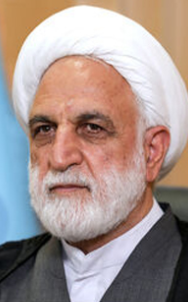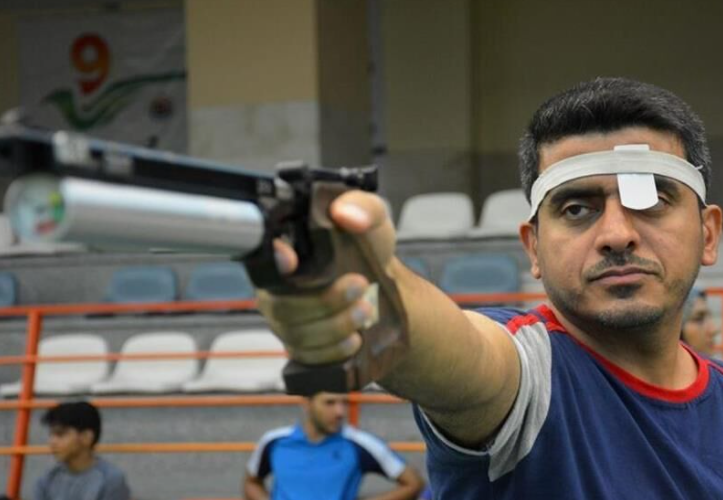August 06, 2021

The Supreme Leader has appointed an extreme hardline cleric as the country’s new Judiciary chief, signaling a consolidation of power in the hands of the far right.
The new chairman of the Judiciary, Gholam-Hossain Moh-seni-Ejai, 64, takes the reins from Ebrahim Raisi, just elected a president.
Supreme Leader Ali Kha-menehi announced Ejai’s appointment, urging him to advocate for justice and fight corruption. In a decree, he praised Ejai’s “valuable experience, shining record and legal competence.”
Ejai, considered close to Khamenehi, currently serves as deputy chairman of the Judiciary after a long history in the branch, including as prosecutor general. In that post, from 2009 to 2014, he pushed to further limit access to the internet and popular social media apps, sparking worries among his opponents over an increase in social oppression.
From 2005 to 2009, during the first term of President Mahmud Ahmadi-nejad, Ejai served as intelligence minister, following decades of deep involvement in the services dating back to his role as head of the ministry’s recruiting office in the 1980s.
The cleric landed on the US and EU sanctions lists for human rights abuses linked to Ahmadi-nejad’s disputed reelection in 2009.
Ejai’s relationship to Ahmadi-nejad became strained in 2009, when as intelligence minister he openly opposed the administration’s tactic of broadcasting televised confessions from government opponents arrested in the post-election turmoil. In 2009, Ahmadinejad dismissed Ejai from his post.
Even before the 2009 crackdown, Ejai was associated with moves to jail Reformist politicians. In 1998, he became nationally famous as the judge who shocked the country with a harsh verdict against its liberal mayor, Gholam-Hossain Karbaschi. The two men dueled during a televised trial of Karbaschi—a jousting in which Karbaschi was generally seen as coming out the winner. But Ejai had the last word and sentenced Karbaschi to five years in prison, 60 lashes and a hefty fine.
Ejai also has come under heavy criticism over his role as a prosecutor with the Special Court for the Clergy from 1998 to 2005, the regime’s main mechanism for control of its political base. In 1999, Ejai ordered several high-profile Reformist clerics – including President Mohammad Khatami’s interior minister, Abdollah Nouri, and academics Mohsen Kadivar and Hassan Yousefi-Ashkevari—defrocked and imprisoned.
His opponents accuse Ejai of involvement in a string of killings of activists, dissidents and intellectuals that began in 1998. Many moderates saw the slayings as an assault by hardliners against the country’s Reformist movement. Dissidents claim that more than 80 opposition activists were killed by the security services in the 1990s.
The chairman of the Judiciary in Iran runs the entire Judicial branch of the government. But he is not the chief justice. There is a Supreme Court within the Judiciary that has a chief justice.























